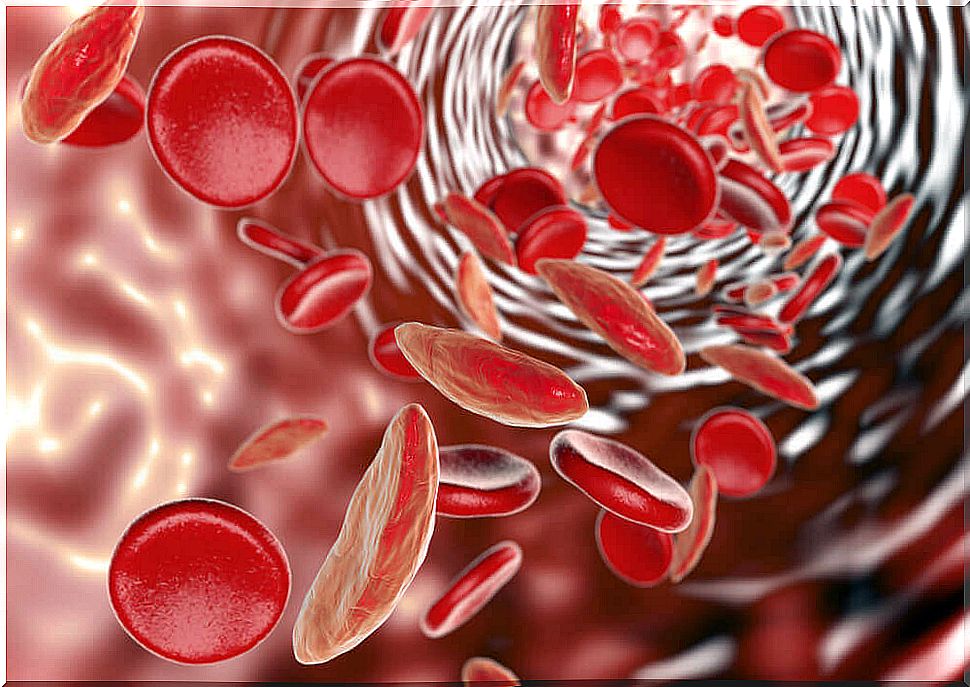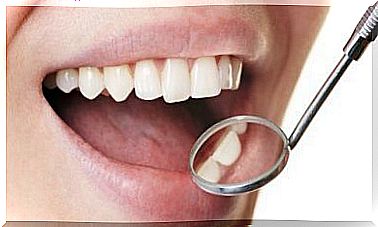Resveratrol: Properties And Benefits Of Its Consumption
Resveratrol belongs to the group of phytoalexins. It is produced by some plants as a defense against fungal and bacterial attacks. Therefore, its synthesis is conditioned by the existence of stressors for the plant.
This compound has been used by traditional medicine for more than 2000 years. However, it was about 30 years ago that it was first isolated. Then, scientific studies began to support its properties. We will tell you about them below.
What is resveratrol?
Resveratrol is a polyphenol present in grapes, some nuts, and red wine that has a number of beneficial health properties.
This polyphenol is present in numerous plants and fruits. For example, in peanuts, blackberries, blueberries and, especially, grapes and red wine.
It has been suggested that moderate daily consumption of red wine would explain the so-called “French paradox”. According to this paradox or belief, the population of southern France, despite eating a diet high in saturated fat, has a low incidence of coronary heart disease.
Controversies over the benefits of resveratrol
The properties of resveratrol have been evaluated for years. In vitro studies have shown promising results for the compound’s anti-inflammatory and anti-allergic properties, among others.
Regarding its in vivo properties , the activity of resveratrol is not so clear. There are studies that assure its potential as a protector of the cardiovascular system. Also its benefits on longevity and in diseases such as diabetes.
On the contrary, other authors do not support the equivalence of the results obtained in vitro and in vivo. One of the causes that explains this controversy is the bioavailability of resveratrol. Since after consumption, the compound is rapidly absorbed and only a small fraction remains free in the blood and available for its target cells.
In vitro studies
Some of the effects attributable to resveratrol obtained from in vitro studies are as follows.

1. Antiplatelet
Platelet aggregation is inhibited by resveratrol both in vivo and in vitro. It is suggested that this action could be due to the binding of the compound to calcium channels. What causes an inhibition of thrombin.
This property could have an interesting application in the prevention of cardiovascular diseases. Especially when preventing, for example, the formation of thrombi.
2. Increases lipolysis
Resveratrol regulates, in vitro, lipolysis and the accumulation of triglycerides. In this way, it participates in the mobilization of fats in adipocytes. In this sense, a possible treatment for obesity is suggested, by preventing the accumulation of fat.
3. Antioxidant actions
The antioxidant potential of the compound has been studied in isolated brain mitochondria. In these studies, resveratrol has been shown to be able to inhibit mitochondrial respiration. Therefore, the production of free radicals in the cell decreases. In turn, it could thus prevent the effects of aging and cell damage.
In vivo studies
Chemoprotective actions
Resveratrol could have protective effects on various biological effects, as shown by various in vivo studies . This could be verified in a skin cancer model. In the same one, it was observed that the compound protected against the initiation of said cancer.
In diabetes, it favors energy metabolism
Studies in diabetic rats showed that resvelatrol can be a great ally to control and improve the health status of diabetic patients. The molecule would promote energy metabolism and reduce protein destruction.

Favorable effects on processes associated with aging
Resveratrol possesses neuroprotective activity due, in part, to its anti-inflammatory potential. The molecule is capable of lowering tumor necrosis factor levels. Also inducible nitric oxide and interleukins, compounds that participate in inflammation.
Likewise, its neuroprotective activity could also be due to its ability to activate the sirtuin enzyme, directly related to caloric restriction and longevity. This enzyme is believed to promote the synthesis of neurotrophic factors that improve brain health.
Recommendations on resveratrol
In recent years, lifestyle changes, especially in eating patterns, have been increasingly seen as a means of preventing and treating chronic diseases. In this context, polyphenols have emerged as natural compounds with broad beneficial effects against cardiovascular diseases.
However, despite the benefits mentioned, we would like to remember that, when a disease is suspected, it is the doctor who must recommend the most appropriate treatment.









